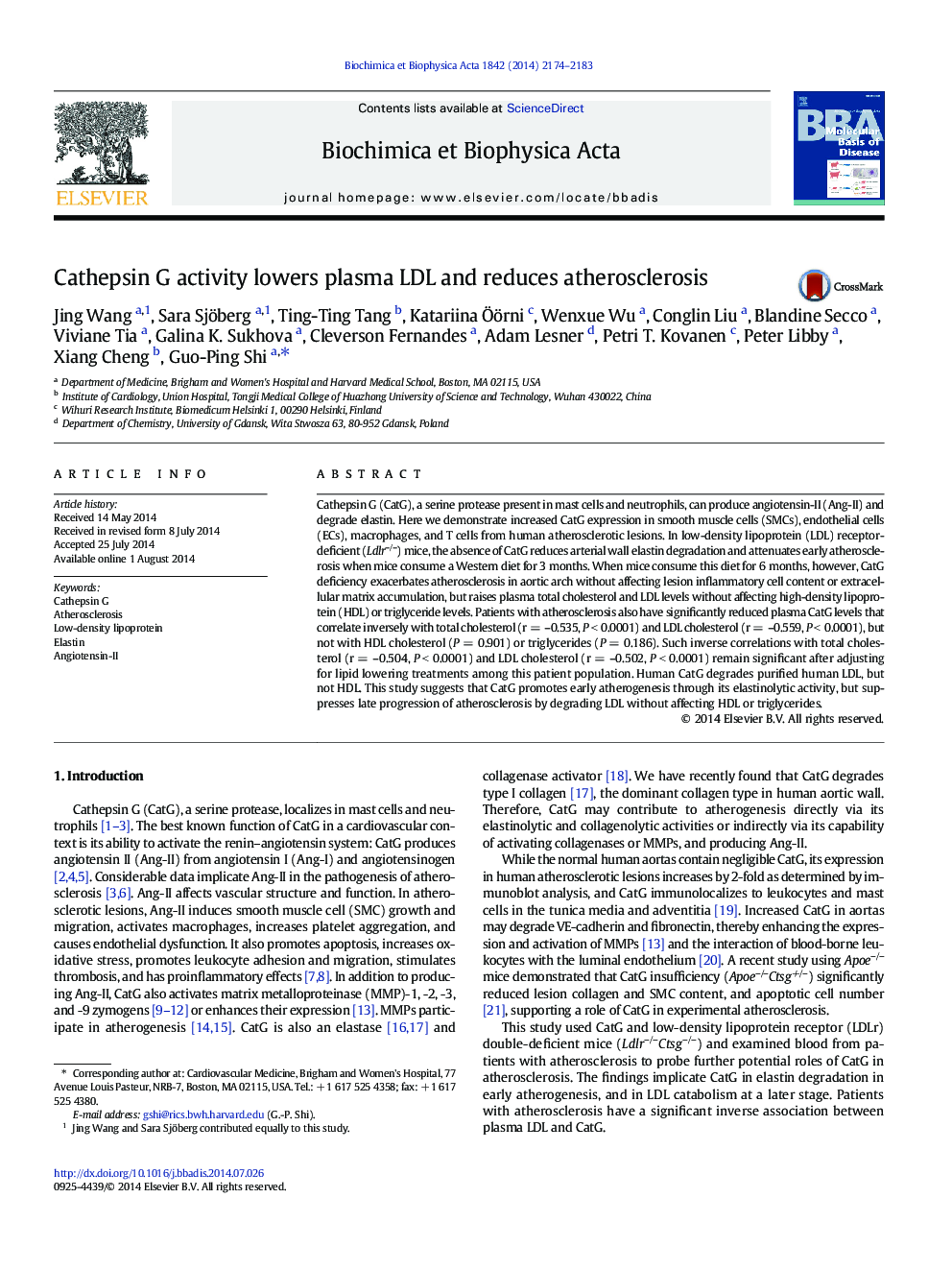| Article ID | Journal | Published Year | Pages | File Type |
|---|---|---|---|---|
| 1904724 | Biochimica et Biophysica Acta (BBA) - Molecular Basis of Disease | 2014 | 10 Pages |
•This study demonstrates increased expression of CatG in human atherosclerotic lesions.•CatG contributes to experimental atherogenesis differently at different stages.•CatG can degrade arterial wall elastin to promote early stage atherogenesis.•CatG can also degrade plasma LDL to reduce late stage atherogenesis.
Cathepsin G (CatG), a serine protease present in mast cells and neutrophils, can produce angiotensin-II (Ang-II) and degrade elastin. Here we demonstrate increased CatG expression in smooth muscle cells (SMCs), endothelial cells (ECs), macrophages, and T cells from human atherosclerotic lesions. In low-density lipoprotein (LDL) receptor-deficient (Ldlr–/–) mice, the absence of CatG reduces arterial wall elastin degradation and attenuates early atherosclerosis when mice consume a Western diet for 3 months. When mice consume this diet for 6 months, however, CatG deficiency exacerbates atherosclerosis in aortic arch without affecting lesion inflammatory cell content or extracellular matrix accumulation, but raises plasma total cholesterol and LDL levels without affecting high-density lipoprotein (HDL) or triglyceride levels. Patients with atherosclerosis also have significantly reduced plasma CatG levels that correlate inversely with total cholesterol (r = –0.535, P < 0.0001) and LDL cholesterol (r = –0.559, P < 0.0001), but not with HDL cholesterol (P = 0.901) or triglycerides (P = 0.186). Such inverse correlations with total cholesterol (r = –0.504, P < 0.0001) and LDL cholesterol (r = –0.502, P < 0.0001) remain significant after adjusting for lipid lowering treatments among this patient population. Human CatG degrades purified human LDL, but not HDL. This study suggests that CatG promotes early atherogenesis through its elastinolytic activity, but suppresses late progression of atherosclerosis by degrading LDL without affecting HDL or triglycerides.
